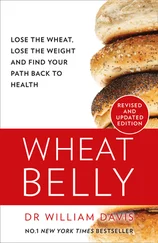I will discuss why wheat is unique among foods for its curious effects on the brain, effects shared with opiate drugs. It explains why some people experience incredible difficulty removing wheat from their diet. It’s not just a matter of inadequate resolve, inconvenience or breaking well-worn habits; it’s about severing a relationship with something that gains hold of your psyche and emotions, not unlike the hold heroin has over the desperate addict.
While you knowingly consume coffee and alcohol to obtain specific mind effects, wheat is something you consume for ‘nutrition’, not for a ‘fix’. Like drinking the Kool-Aid at the Jim Jones revival meeting, you may not even be aware that this thing, endorsed by all ‘official’ agencies, is fiddling with your mind.
People who eliminate wheat from their diet typically report improved mood, fewer mood swings, improved ability to concentrate and deeper sleep within just days to weeks of their last bite of bagel or baked lasagna. These sorts of ‘soft’ subjective experiences on our brains, however, are tough to quantify. They are also subject to the placebo effect – i.e., people just think they’re feeling better. I am, however, impressed with how consistent these observations are, experienced by the majority of people once the initial withdrawal effects of mental fog and fatigue subside. I’ve personally experienced these effects and also witnessed them in thousands of people.
It is easy to underestimate the psychological pull of wheat. Just how dangerous can an innocent bran muffin be, after all?
‘BREAD IS MY CRACK!’
Wheat is a food that is unparalleled for its potential to generate entirely unique effects on the brain and nervous system. There is no doubt: for some people, wheat is addictive. And, in some people, it is addictive to the point of obsession.
Some people with wheat addiction just know they have a wheat addiction. Or perhaps they identify it as an addiction to some wheat-containing food, such as pasta or pizza. They already understand, even before I tell them, that their wheat-food-addiction-of-choice provides a little ‘high’. I still get shivers when a well-dressed, suburban mum desperately confesses to me, ‘Bread is my crack. I just can’t give it up!’
Wheat can dictate food choice, calorie consumption, timing of meals and snacks. It can influence behaviour and mood. It can even come to dominate thoughts. A number of my patients, when presented with the suggestion of removing it from their diets, report obsessing over wheat products to the point of thinking about them, talking about them, salivating over them constantly for weeks. ‘I can’t stop thinking about bread. I dream about bread!’ they tell me, leading some to succumb to a wheat-consuming frenzy and give up within days after starting.
There is, of course, a flip side to addiction. When people divorce themselves from wheat-containing products, 30 per cent experience something that can only be called withdrawal.
I’ve personally witnessed hundreds of people report extreme fatigue, mental fog, irritability, inability to function at work or school, even depression in the first several days to weeks after eliminating wheat. Complete relief is achieved by a bagel or cupcake (or, sadly, more like four bagels, two cupcakes, a bag of pretzels, two muffins and a handful of brownies, followed the next morning by a nasty case of wheat remorse). It’s a vicious circle. Abstain from a substance and a distinctly unpleasant experience ensues; resume it, the unpleasant experience ceases – that sounds a lot like addiction and withdrawal to me.
People who haven’t experienced these effects pooh-pooh it all, thinking it strains credibility to believe that something as pedestrian as wheat can affect the central nervous system much as nicotine or crack cocaine do.
There is a scientifically plausible reason for both the addiction and withdrawal effects. Not only does wheat exert effects on the normal brain, but also on the vulnerable abnormal brain, with results beyond simple addiction and withdrawal. Studying the effects of wheat on the abnormal brain can teach us some lessons on why and how wheat can be associated with such phenomena.
WHEAT AND THE SCHIZOPHRENIC MIND
The first important lessons on the effects wheat has on the brain came through studying its effects on people with schizophrenia.
Schizophrenics lead a difficult life. They struggle to differentiate reality from internal fantasy, often entertaining delusions of persecution, even believing their minds and actions are controlled by external forces. (Remember ‘Son of Sam’ David Berkowitz, the New York City serial killer who stalked his victims on instructions received from his dog? Thankfully, violent behaviour is unusual in schizophrenics, but it illustrates the depth of pathology possible.) Once schizophrenia is diagnosed, there is little hope of leading a normal life of work, family and children. A life of institutionalisation, medications with awful side effects and a constant struggle with dark internal demons lies ahead.
So what are the effects of wheat on the vulnerable schizophrenic mind?
The earliest formal connection of the effects of wheat on the schizophrenic brain began with the work of psychiatrist F. Curtis Dohan, whose observations ranged as far as Europe and New Guinea. Dr Dohan journeyed down this line of investigation because he observed that, during World War II, the men and women of Finland, Norway, Sweden, Canada and the United States required fewer hospitalisations for schizophrenia when food shortages made bread unavailable, only to require an increased number of hospitalisations when wheat consumption resumed after the war was over. 1
Dr Dohan observed a similar pattern in the hunter-gatherer Stone Age culture of New Guinea. Prior to the introduction of Western influence, schizophrenia was virtually unknown, diagnosed in only 2 of 65,000 inhabitants. As Western eating habits infiltrated the New Guinean population and cultivated wheat products, beer made from barley, and corn were introduced, Dr Dohan watched the incidence of schizophrenia skyrocket sixty-five-fold . 2On this background, he set out to develop the observations that established whether or not there was a cause-and-effect relationship between wheat consumption and schizophrenia.
In the mid-sixties, while working at the Veterans Administration Hospital in Philadelphia, Dr Dohan and his colleagues decided to remove all wheat products from meals provided to schizophrenic patients without their knowledge or permission. (This was in the era before informed consent of participants was required, and before the infamous Tuskegee syphilis experiment became publicised, which triggered public outrage and led to legislation requiring fully informed participant consent.) Lo and behold, four weeks sans wheat and there were distinct and measurable improvements in the hallmarks of the disease: a reduced number of auditory hallucinations, fewer delusions, less detachment from reality. Psychiatrists then added the wheat products back into their patients’ diets and the hallucinations, delusions and social detachment rushed right back. Remove wheat again, patients and symptoms got better; add it back, they got worse. 3
The Philadelphia observations in schizophrenics were corroborated by psychiatrists at the University of Sheffield, with similar conclusions. 4There have since even been reports of complete remission of the disease, such as the seventy-year-old schizophrenic woman described by Duke University doctors, suffering with delusions, hallucinations and suicide attempts with sharp objects and cleaning solutions over a period of fifty-three years, who experienced complete relief from psychosis and suicidal desires within eight days of stopping wheat. 5
Читать дальше












